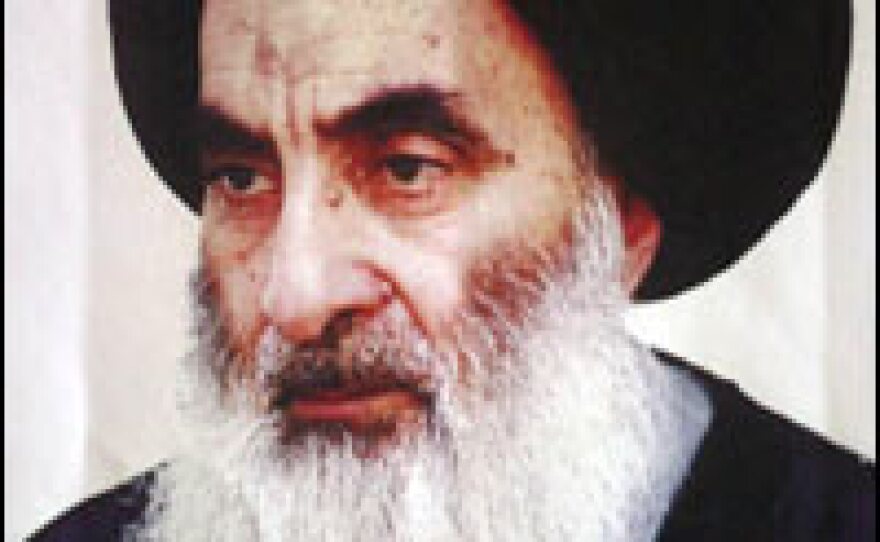
Grand Ayatollah Ali al-Sistani is the leading Shiite religious figure in Iraq. An Iranian by birth, Sistani is one of five Grand Ayatollahs in Iraq, only two of whom are Iraqi. He was chosen by the Shiite clerical leadership in the 1990s to be the head religious figure in the country after the death of his predecessor.
Sistani has been a key figure since the U.S.-led invasion of Iraq in 2003. He has no army or militia, but his spiritual and moral authorities are incredibly influential among Iraqi Shiites. His role immediately after the invasion was to unite the various competing Shiite political forces into a single bloc.
He was also the chief advocate of direct elections in Iraq. He demanded one-man, one-vote to give Iraq's long-oppressed Shiite majority the power to govern the country.
However, unlike Ayatollah Khamenei in neighboring Iran, Sistani is a leader of the "quietist" school of Shiite thought, which believes that clerics should not directly participate in politics.
While Sistani still holds immense influence in Iraq, he does not dictate to all the Shiites. Radical anti-American cleric Muqtada al-Sadr has defied him repeatedly -- most notably in 2004, when Sadr led an uprising against American forces in the Shiite holy city of Najaf. Much of the city was destroyed in the fighting. The battle only ceased after Sistani returned from abroad, where he was receiving medical treatment and negotiated with Sadr. But Sistani is far from pro-American. He has made it a point to never meet with American officials.
While Sistani has been effective to a certain degree, many Shiites are becoming frustrated with his lack of direct engagement in politics. His influence has been eroded by the continuing sectarian violence in Iraq. He has repeatedly urged Shiites to refrain from retaliatory violence against Sunnis, and was for the most part successful until the bombing of a holy Shiite shrine in Samarra in February 2006. Since then, escalating sectarian violence on both sides has driven the country into chaos.
In recent months Sistani has been critical of the government of Prime Minister Nouri al-Maliki. He has said Maliki hasn't done enough to help ordinary Iraqis and that some ministries have been ineffective.
It is hard to know exactly what Sistani is thinking and planning. He speaks mostly through aides, many of whom are close family, and clerics loyal to him. His main thrust seems to be keeping the Shiites united in a common front politically, but he refuses to get involved in the day-to-day political infighting that characterizes Iraqi politics.
Copyright 2022 NPR. To see more, visit https://www.npr.org. 9(MDAzMjM2NDYzMDEyMzc1Njk5NjAxNzY3OQ001))






